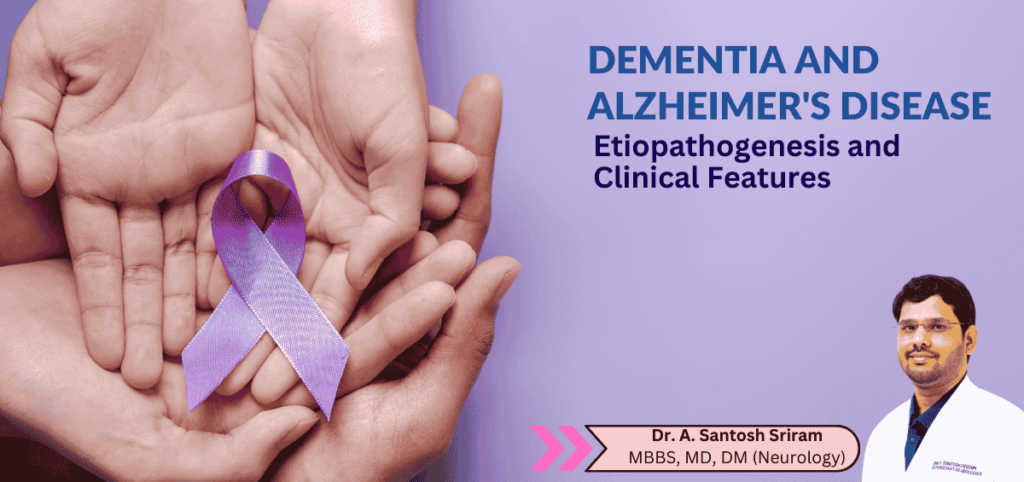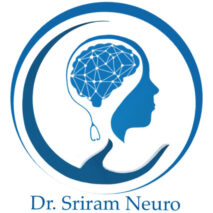
Know All About Dementia and Alzheimer’s Disease
Dementia is characterized by a decline in memory and cognitive abilities that interfere with daily functioning, while Alzheimer’s Disease is the most common cause of this syndrome, particularly in older adults.
Memory loss is one of the most prominent symptoms of AD. Short-term memory, in particular, is typically affected in the early stages, while long-term memories may remain intact for longer.
With nearly 100 million worldwide living with dementia, understanding these conditions is crucial, not only for the patients but also for their families and healthcare providers.
A study published in Alzheimer’s & Dementia, titled Prevalence of dementia in India: National and state estimates from a nationwide study, found that 7.4% of adults aged 60 and above in India are affected by dementia, which equates to approximately 8.8 million individuals.
AD is an epidemic, primarily affecting individuals over the age of 65, with the incidence of dementia doubling every five years after that age. The global aging population means the number of people affected by AD will continue to rise, placing immense strain on families, caregivers, and healthcare systems.
Etiopathogenesis of Dementia and Alzheimer’s Disease
The term “etiopathogenesis” refers to the study of the cause and development of a disease. In the case of AD, it involves understanding both the genetic factors that contribute to the disease as well as the environmental influences that play a role.
- Genetic Factors and Alzheimer’s Disease
Genetics play a major role in AD. Certain gene mutations, such as in APP, PSEN1, and PSEN2, are linked to early-onset AD, while other genetic factors like the APOE gene influence late-onset AD. Carriers of the APOE ε4 allele have a higher risk of developing AD due to its impact on amyloid-β metabolism and clearance. - Environmental Influences on Dementia
Lifestyle factors such as physical inactivity, poor sleep, and unhealthy diets can contribute to the risk of AD. Additionally, cerebrovascular conditions like hypertension or diabetes can impact brain health and increase susceptibility. - The Role of Amyloid Plaques and Tau Tangles
The accumulation of amyloid plaques in the brain triggers the formation of tau tangles. These plaques and tangles disrupt neural communication and lead to the cognitive decline seen in AD. - Neuroinflammation in Alzheimer’s Disease
Chronic inflammation in the brain also contributes to the progression of AD. Immune cells in the brain become activated in response to amyloid plaques, further exacerbating neuronal damage and cognitive impairment.
👉 Did you know that effective migraine treatments fall into four main categories? Know more about them here.
Clinical Features of Dementia
Dementia manifests with various symptoms that impair daily functioning. Not all dementias involve memory loss, but it is characteristic of Alzheimer’s disease (AD). While the progression and severity can vary, some common clinical features include:
- General
Dementia often starts with subtle memory issues but can evolve to involve difficulties in communication, problem-solving, and judgment. Individuals may experience confusion, mood changes, and difficulty performing daily activities. - Cognitive Decline and Memory Loss
Memory loss is one of the most prominent symptoms. Short-term memory, in particular, is typically affected in the early stages, while long-term memories may remain intact for longer. - Behavioral and Psychological Symptoms
Individuals with dementia may exhibit anxiety, depression, aggression, and hallucinations. These symptoms can significantly impact the patient’s quality of life and pose challenges for caregivers.
Clinical Features of Alzheimer’s Disease
Alzheimer’s Disease presents with specific clinical features that help differentiate it from other forms of dementia.
- Early Symptoms of Alzheimer’s Disease
The earliest symptoms typically include memory lapses and difficulty recalling recent events. Family members often notice forgetfulness and difficulty finding the right words. - Progression of Cognitive Impairment in AD
As AD progresses, cognitive deficits extend beyond memory to include executive function, language, and visuospatial abilities. Patients may have trouble organizing tasks, making decisions, or recognizing familiar places. - Specific Symptoms and their Impact on Daily Life
In the middle stages of AD, individuals may experience disorientation and confusion about time, place, and people. They may need assistance with everyday tasks like dressing or bathing. - End-stage Alzheimer’s Disease
In the final stages of AD, individuals become completely dependent on others for care. Symptoms include severe memory loss, difficulty communicating, and physical decline, including problems with swallowing and mobility.
👉 Did you know that conditions like cardiovascular health issues, obesity, traumatic brain injury, substance use, physical inactivity, and social isolation are modifiable risk factors for dementia? Read more here.
Differentiating Dementia from Alzheimer’s Disease
While Alzheimer’s Disease is the most common cause of dementia, the two are not synonymous. Diagnosing AD involves distinguishing it from other forms of dementia.
- Key Diagnostic Differences
Alzheimer’s Disease is characterized by specific changes in the brain, such as amyloid plaques and tau tangles, which are detectable through neuroimaging and fluid biomarkers. Other types of dementia, like vascular dementia or frontotemporal dementia, have different underlying pathologies. - Role of Neuroimaging and Biomarkers
Neuroimaging techniques, like MRI and PET scans, are used to detect structural changes in the brain, while biomarkers in cerebrospinal fluid or blood can help identify AD-related changes.
The Need for Early Diagnosis and Intervention
Given the devastating effects of AD, early diagnosis and intervention are critical for improving outcomes. Early recognition allows for better management of symptoms and planning for future care needs.
- Importance of Early Recognition and Management
Early intervention can help manage symptoms, reduce caregiver burden, and improve the patient’s quality of life. Pharmacological treatments can slow the progression of symptoms, and non-pharmacological interventions, like cognitive therapies and lifestyle modifications, can provide further benefits. - Ongoing Research and Future Directions in Treatment
While there is no cure for Alzheimer’s Disease, ongoing research offers hope for future treatments. Advances in understanding the molecular mechanisms behind the disease and the development of new diagnostic tools may lead to more effective therapies in the coming years.
Note: NOT ALL DEMENTIAS HAVE MEMORY LOSS BUT IT CHARACTERISTC OF AD.
With the right knowledge and support, we can improve the lives of those living with AD and dementia. Learn more about your AD & Dementia risk and protect your future by scheduling a consultation with Dr. A. Santosh Sriram who is one of the best Alzheimer’s disease and dementia treatment doctors In hyderabad for expert guidance.
